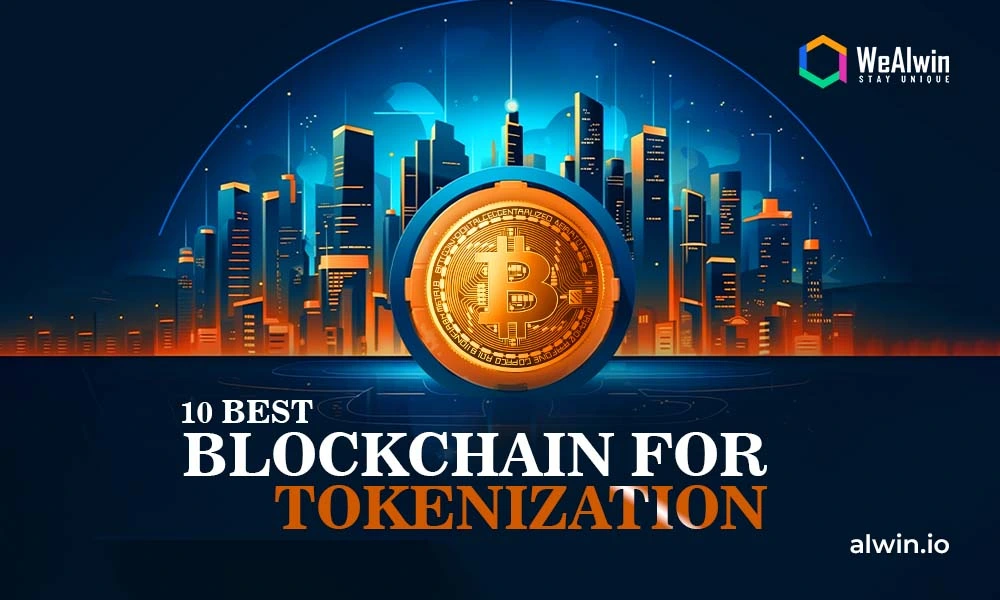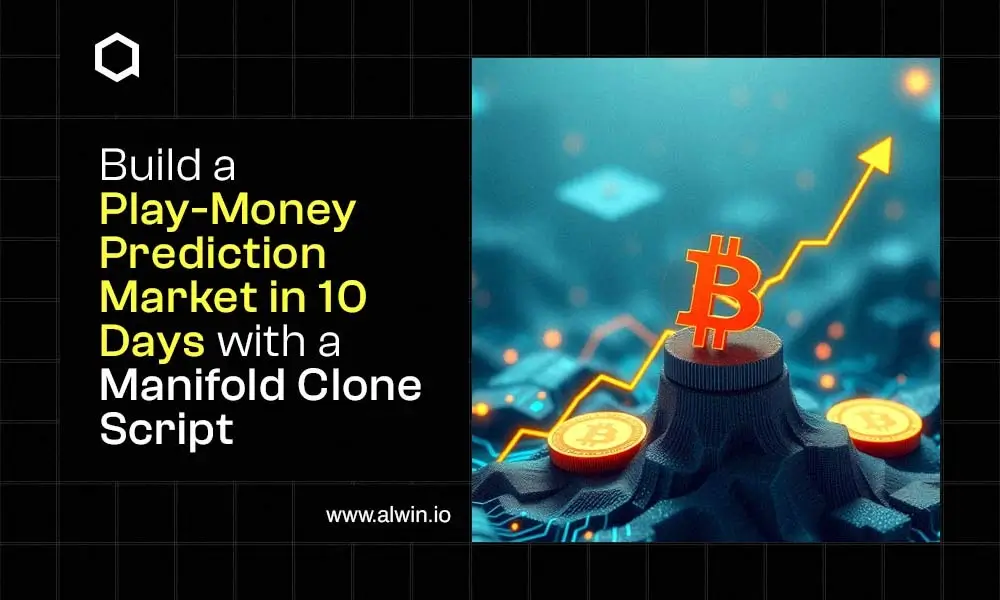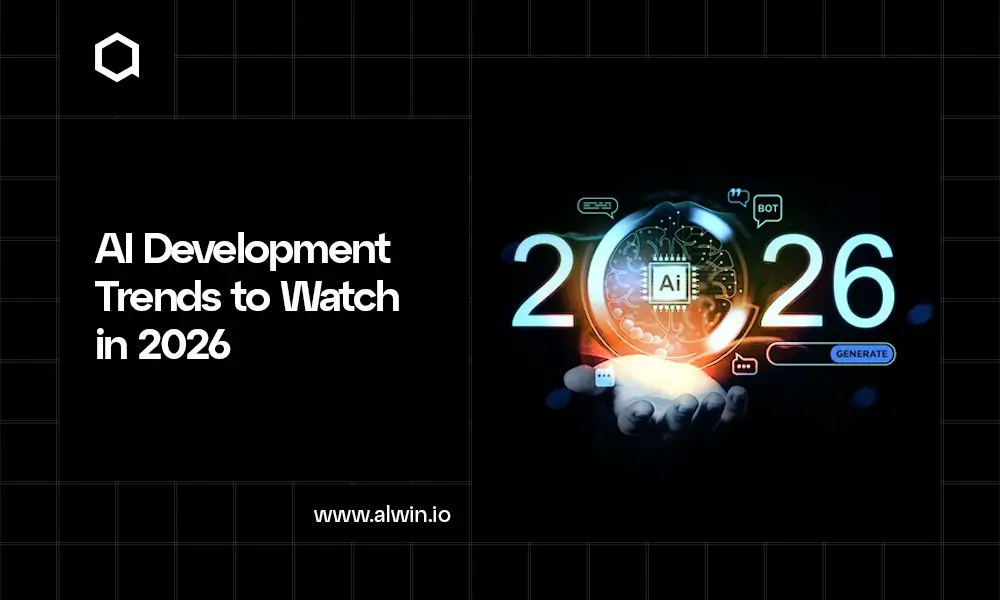Tokenization is a rapidly changing industry, with the global tokenized asset market expected to exceed $5 trillion by 2027. In 2024, real estate, finance, and art businesses are tapping into the power of tokenization to boost liquidity, improve transparency, and enable fractional ownership.
As demand for secure and efficient digital asset management grows, selecting the right blockchain for asset tokenization is crucial. In this blog, we’ll explore the 10 Best Blockchains for Tokenization in 2024, helping you find the best fit for your business to stay ahead in the digital economy.
What is Tokenization and How Does It Work?
Tokenization is the process of converting real-world assets like property, stocks, or artwork into digital tokens that represent ownership, which are recorded and traded on a blockchain. Each token serves as digital proof of ownership or access to a portion of an asset. By using blockchain’s decentralized ledger, tokenization enables assets to be divided into smaller, transferable units.
Smart contracts, which are self-executing contracts with terms written directly into code, play a key role in tokenization. They ensure tokens function as intended, automating processes such as asset transfers and payments, and reducing reliance on intermediaries.
Why is Asset Tokenization Important in 2024?
Asset tokenization is gaining importance in 2024 due to how it changes the way we manage, trade, and invest in assets. Here are some key reasons why it matters this year
Increased Liquidity – Tokenization allows traditionally hard-to-trade assets like real estate, art, and private equity to be separated into smaller units, making them easier to trade. This opens up investment opportunities to a broader range of investors and increases overall liquidity in markets.
Fractional Ownership – By breaking down high-value assets into smaller tokens, tokenization enables fractional ownership, allowing more people to invest in expensive assets without needing large amounts of capital. This makes access to assets like real estate or fine art more inclusive.
Transparency and Security – Blockchain’s decentralized nature keeps all transactions recorded on a secure, transparent ledger. This reduces the risk of fraud, provides accountability, and gives investors greater trust in the system.
Cost Savings – Tokenization can automate processes like settlements, asset transfers, and payments through smart contracts, reducing the need for intermediaries and lowering transaction costs and time.
Global Accessibility – Tokenized assets can be traded across borders with ease, breaking down geographical barriers and allowing a global pool of investors to participate in previously localized markets.
Compliance and Regulation – As regulations around digital assets become clearer in 2024, tokenization is becoming a common method to issue and trade assets on a blockchain, following local and international regulatory frameworks.
Top 10 Blockchains for Tokenization in 2024
Selecting the right blockchain for asset tokenization depends on key factors like transaction volume, security, and system integration. Here are some of the best blockchain platforms for tokenization in 2024:
1. Ethereum
As the pioneer of smart contracts and decentralized applications (dApps), Ethereum remains the go-to blockchain for tokenization. With its robust developer community, support for ERC-20 and ERC-721 token standards, and a massive ecosystem of DeFi protocols, Ethereum is ideal for projects needing security, scalability solutions like Layer 2, and a trusted infrastructure.
2. Solana
Solana is popular for tokenization projects because it offers fast transaction speeds and low costs. Its Proof of History (PoH) and Proof of Stake (PoS) systems allow it to handle a lot of transactions, making it a great choice for industries like real estate and finance.
3. Polygon
Polygon improves Ethereum by providing Layer 2 scaling solutions, making it faster and cheaper for tokenization. It supports the Ethereum Virtual Machine (EVM), which allows easy integration with Ethereum’s vast dApp ecosystem while significantly reducing gas fees, making it ideal for NFT and DeFi tokenization.
4. Binance Smart Chain (BSC)
BSC is a popular blockchain for tokenization thanks to its compatibility with Ethereum, lower transaction costs, and faster speeds. Its large user base and wide range of DeFi applications make it an excellent choice for tokenizing financial assets, NFTs, and other digital assets on a more affordable platform than Ethereum. This feature is used to develop asset tokenization platforms easily.
5. Avalanche
Avalanche offers quick transaction finality and low fees, making it a great choice for tokenization. Its special consensus mechanism supports growth while keeping things secure, allowing businesses to easily tokenize assets in various industries, including supply chains and real estate.
6. Tezos
Tezos provides on-chain governance and energy-efficient Proof of Stake, making it a smart choice for tokenization. Its self-amending protocol allows for easy upgrades without hard forks, which is especially beneficial for long-term projects looking to tokenize assets with less risk of disruptions in the future.
7. Algorand
Algorand’s high transaction speed, near-instant finality, and low fees make it perfect for tokenizing financial assets and real estate. Its Pure Proof of Stake (PPoS) consensus provides security and decentralization, while its eco-friendly approach appeals to industries focused on sustainability.
8. Fantom
Fantom uses a Directed Acyclic Graph (DAG)--based consensus to provide fast, scalable, and cost-effective tokenization solutions. Its ability to manage high transaction speeds makes it well-suited for industries needing large-scale tokenization, like gaming and supply chains.
9. Stellar
Stellar is designed to facilitate cross-border payments, but its low fees and high-speed transactions make it a great choice for tokenizing currencies, stablecoins, and other financial assets. Its integration with traditional financial institutions makes it ideal for businesses looking to tokenize fiat and manage seamless digital asset transfers.
10. Cardano
Cardano is a strong contender for asset tokenization due to its secure and scalable infrastructure. With a focus on peer-reviewed research, it employs a unique Proof of Stake mechanism that enhances security while maintaining energy efficiency. Its support for smart contracts makes it suitable for a variety of tokenization projects.
Industry-Specific Asset Tokenization in 2025
In 2025, asset tokenization is expected to make strides across various industries, offering solutions that meet their unique needs. Here’s an overview of how different sectors will benefit from tokenization:
1. Real Estate
Tokenization allows investors to buy fractions of properties, making real estate investment more accessible while simplifying transactions through automated smart contracts for buying, selling, and leasing.
2. Finance
Traditional financial instruments like stocks and bonds will be tokenized, enabling faster and cheaper trading. This can also increase liquidity in financial markets by allowing easier access to a broader range of investors.
3. Art and Collectibles
Tokenization ensures the authenticity and history of artworks, building trust among buyers. It also enables fractional ownership, allowing art enthusiasts to invest in high-value pieces.
4. Supply Chain
Tokenization provides real-time tracking of goods, ensuring transparency and reducing fraud. Additionally, automated smart contracts facilitate payments and contract execution based on pre-defined conditions.
5. Gaming
By tokenizing in-game items, players can truly own their assets and trade or sell them outside the game. This also allows for interoperability, enabling players to use their assets across different games and platforms.
6. Energy
Tokenization simplifies the trading of renewable energy credits and facilitates peer-to-peer energy trading, allowing households with solar panels to sell excess energy directly to their neighbors.
7. Healthcare
Tokenization gives patients control over their health data, allowing secure sharing with providers. It also simplifies the management of clinical trial data and patient consent.
Conclusion
As we are slowly moving into 2025, the world of tokenization is expanding rapidly, supported by the 10 Best Blockchain for Tokenization. When selecting the right blockchain for your tokenization project, it’s essential to consider factors like transaction speed, security, and the overall ecosystem. Each business has unique demands, and understanding how these blockchains can fulfill them will be critical to your success.
For businesses looking to integrate tokenization into their operations, WeAlwin Technologies, a leading Blockchain development company, provides expert solutions. With our deep expertise in blockchain technologies and a strong track record in tokenization projects, we help businesses unlock the potential of tokenized assets, offering custom solutions that align with your goals.



